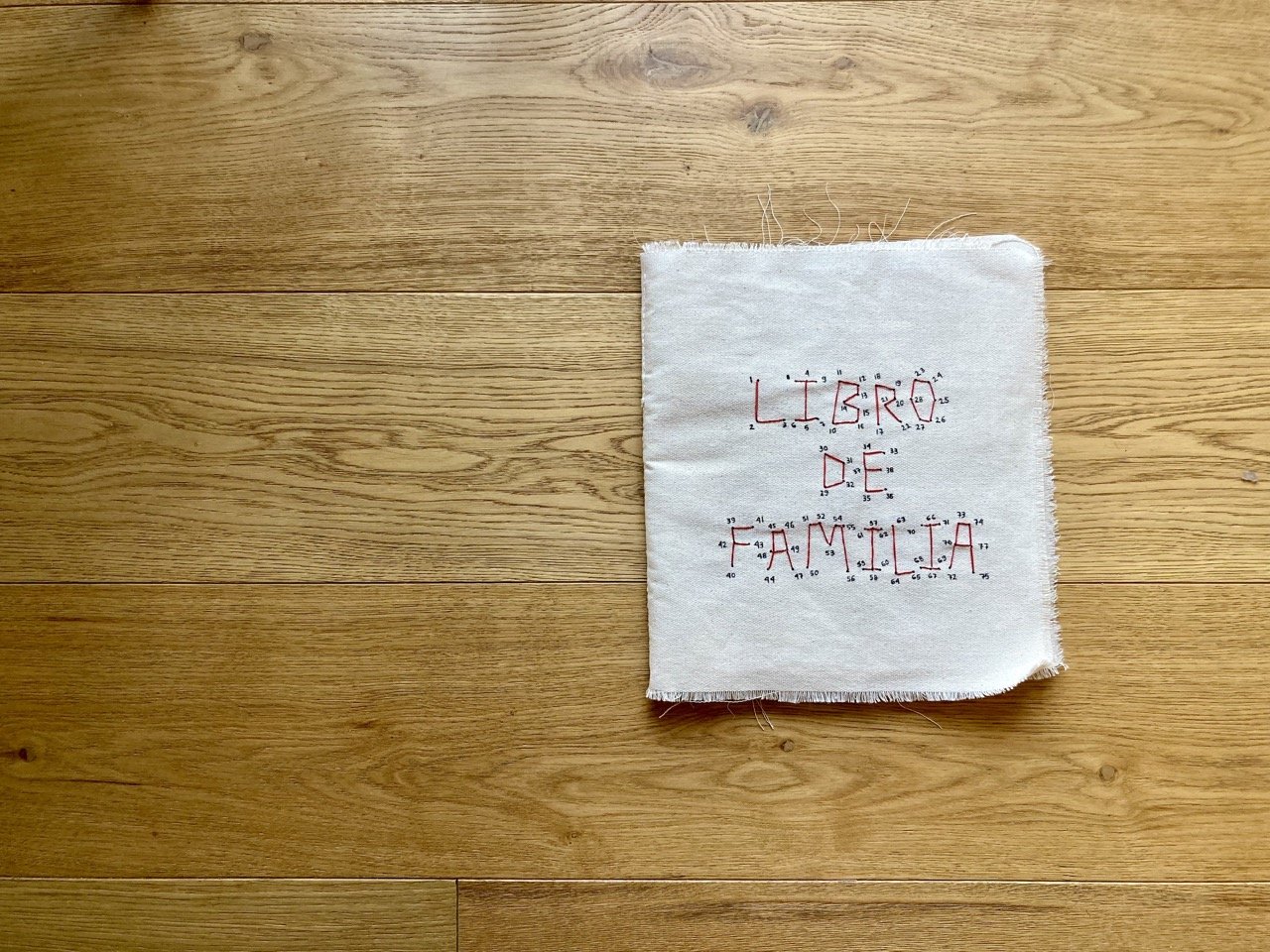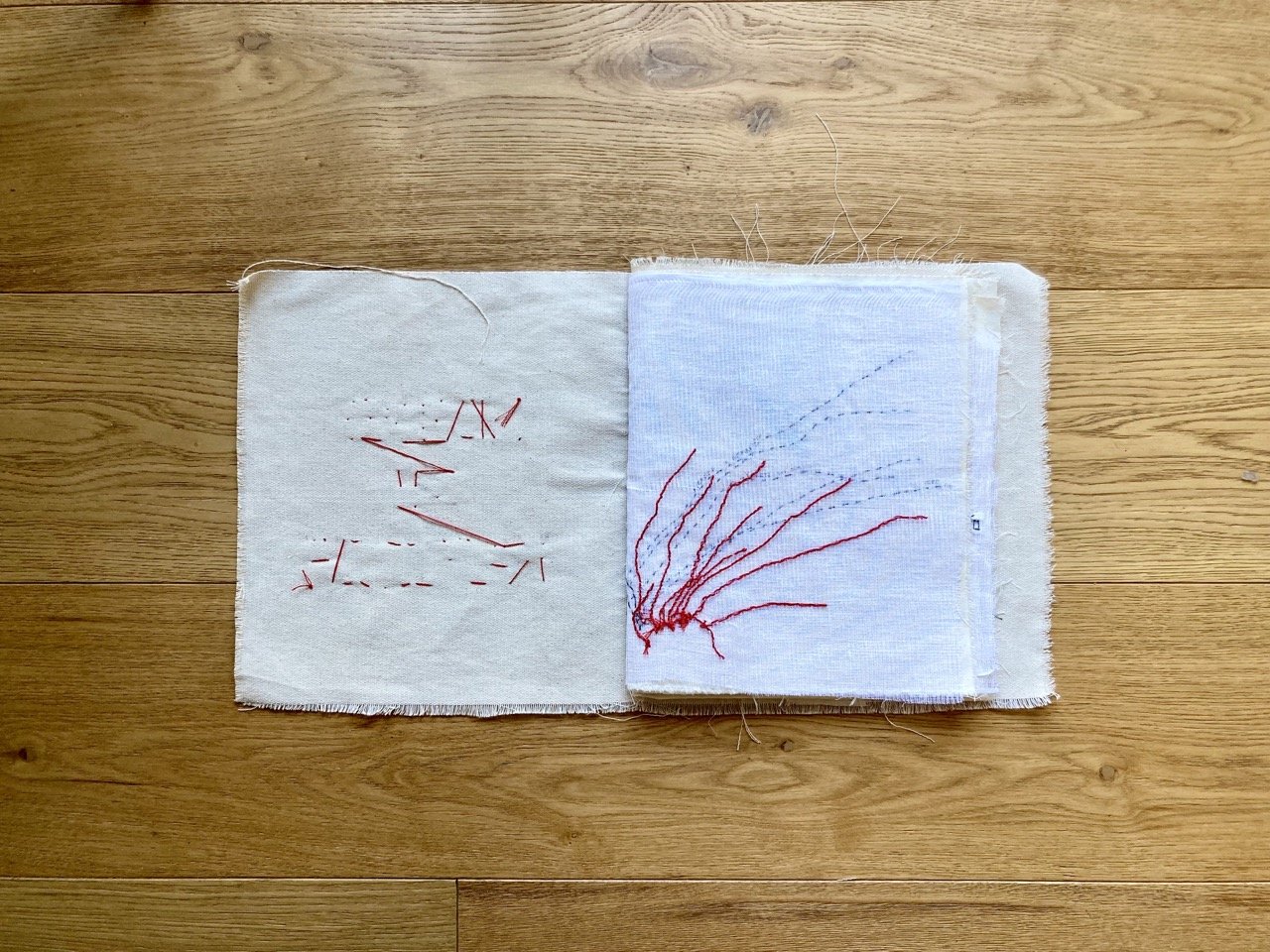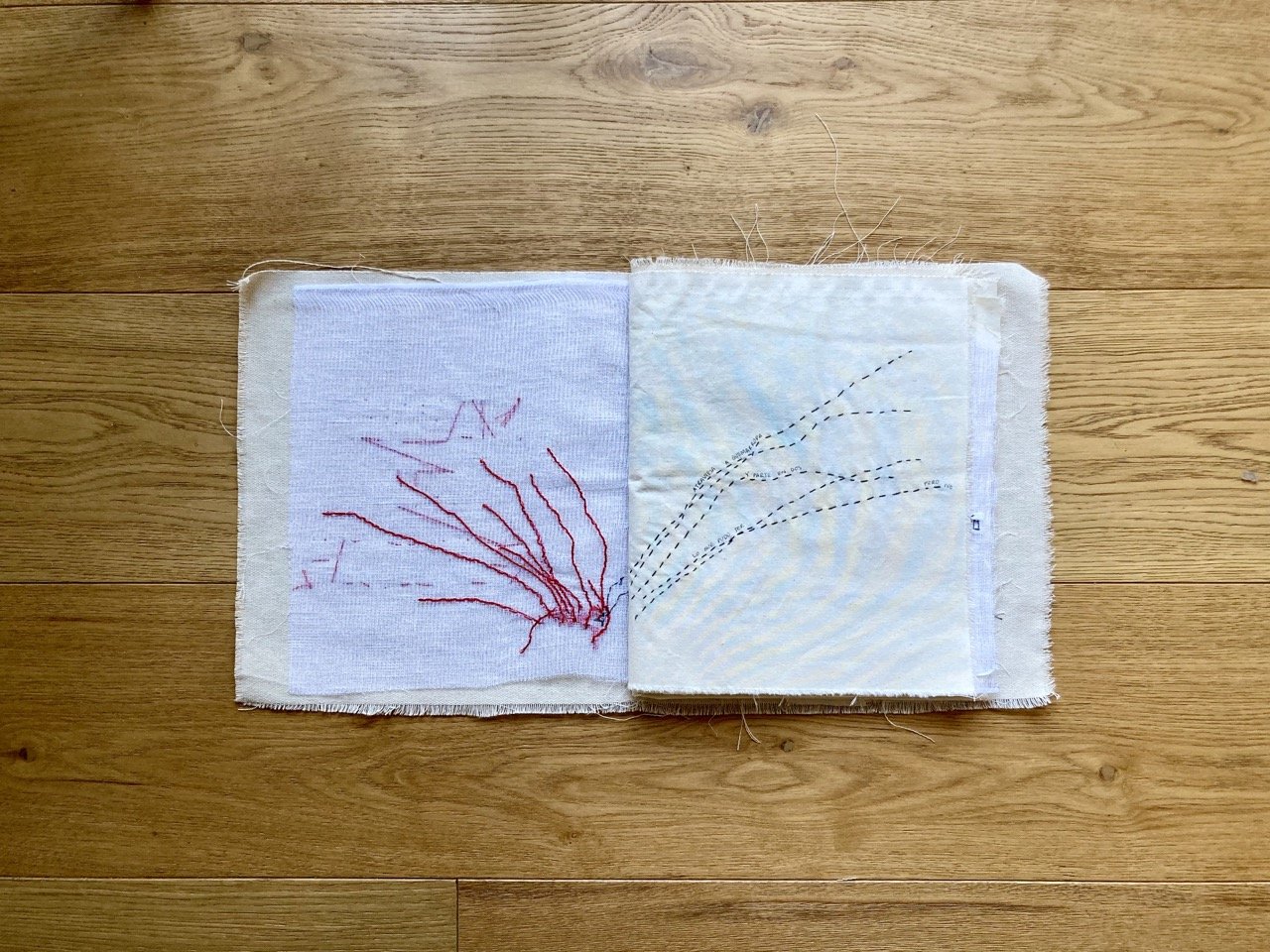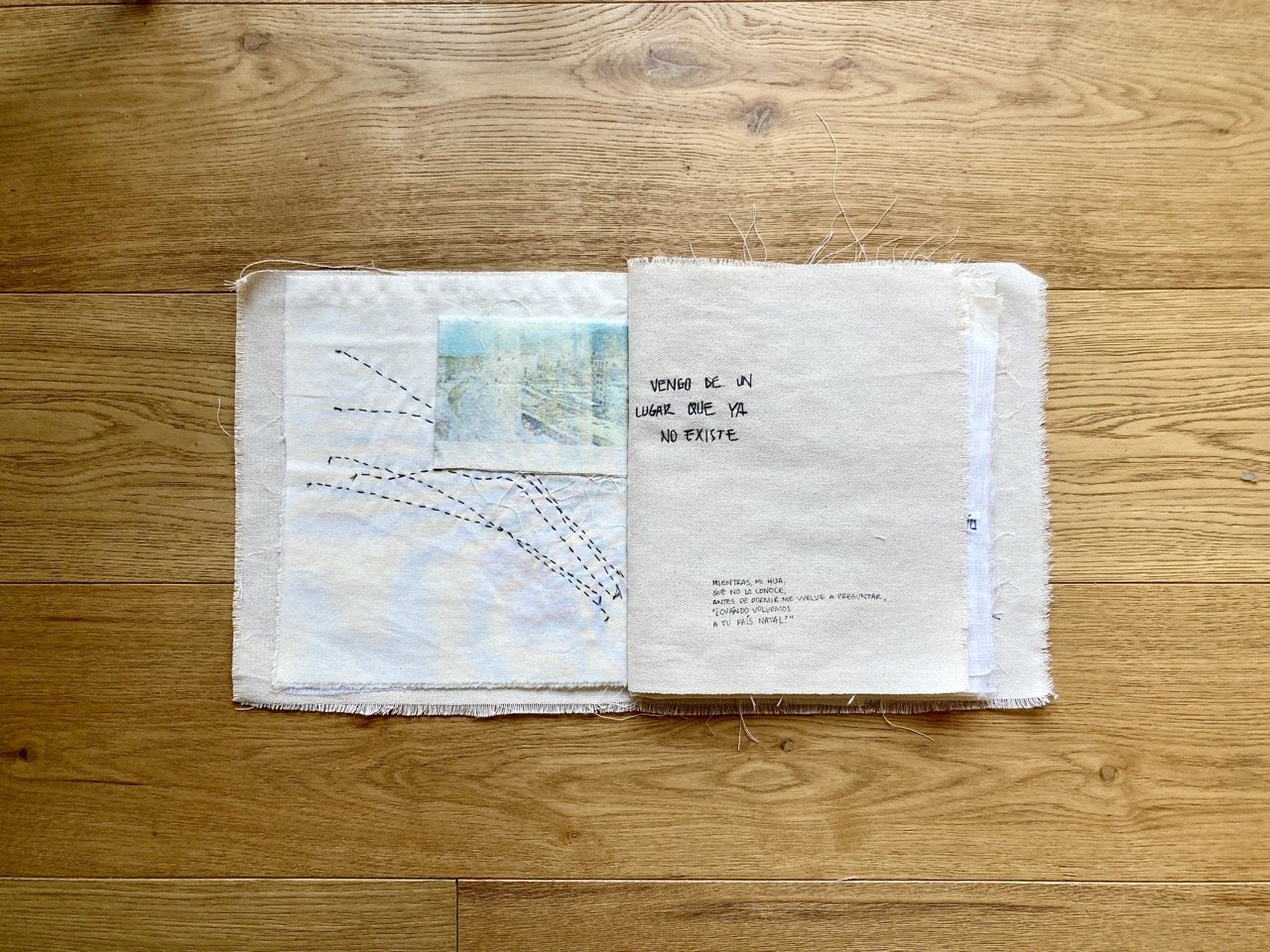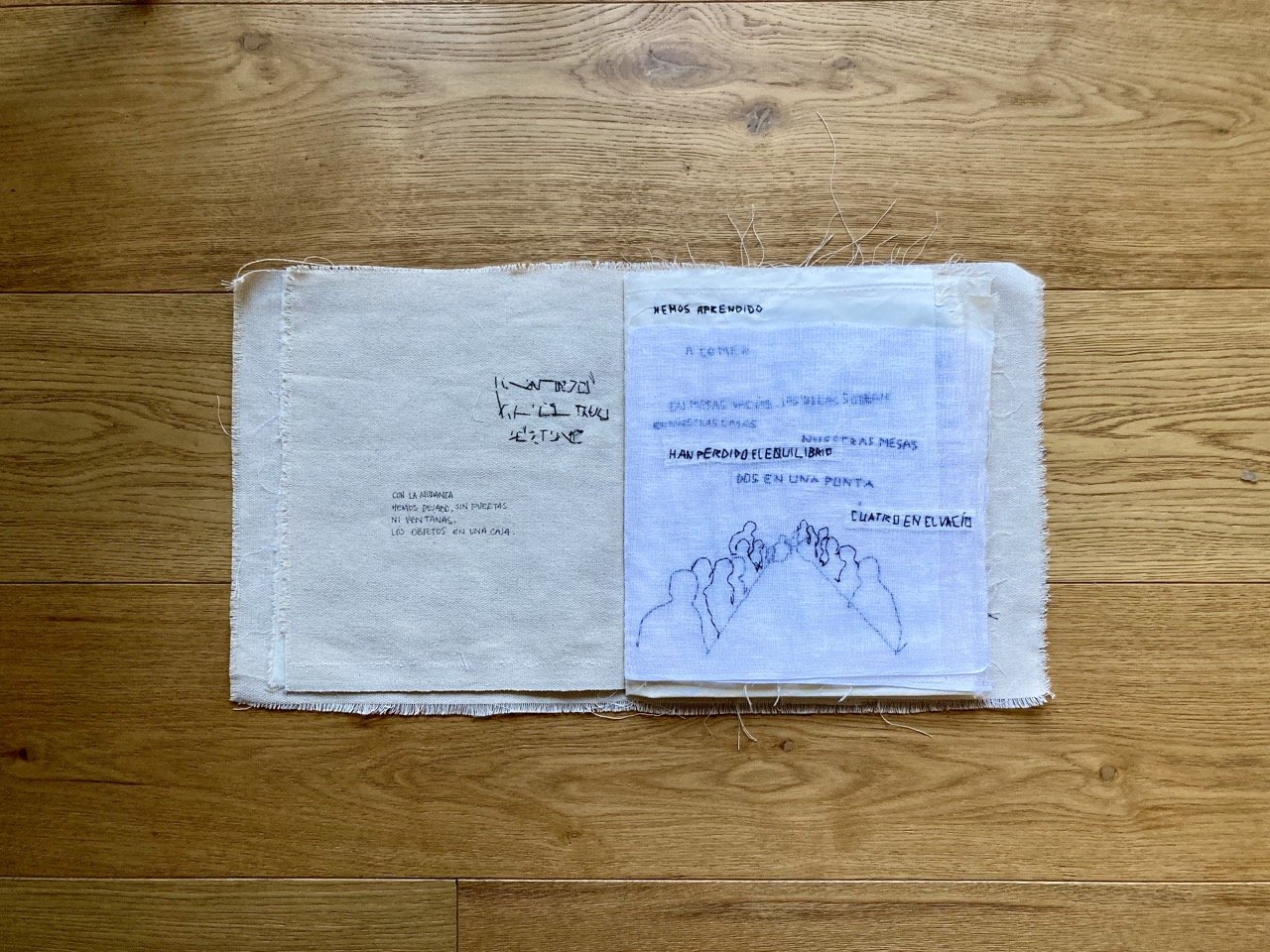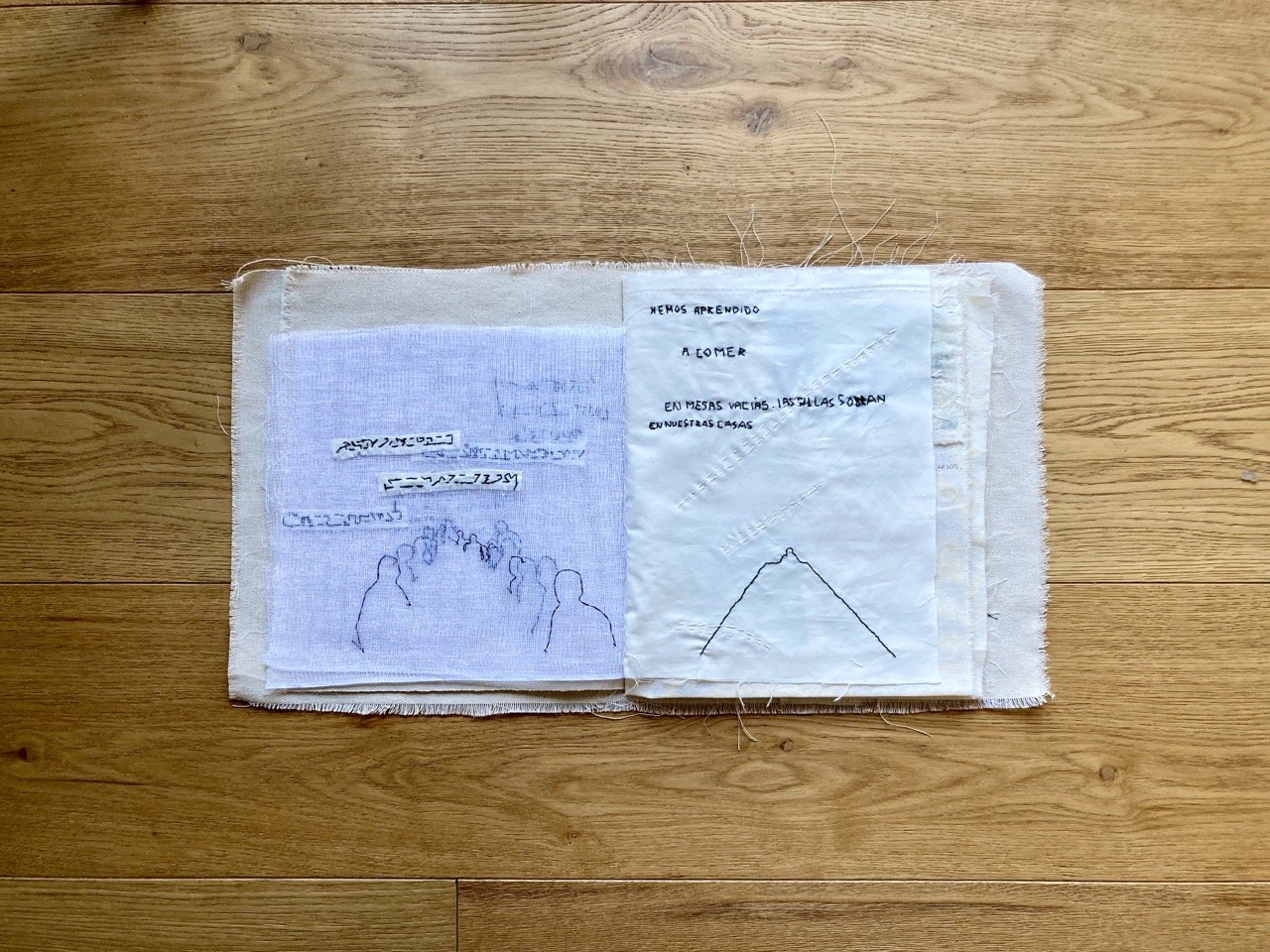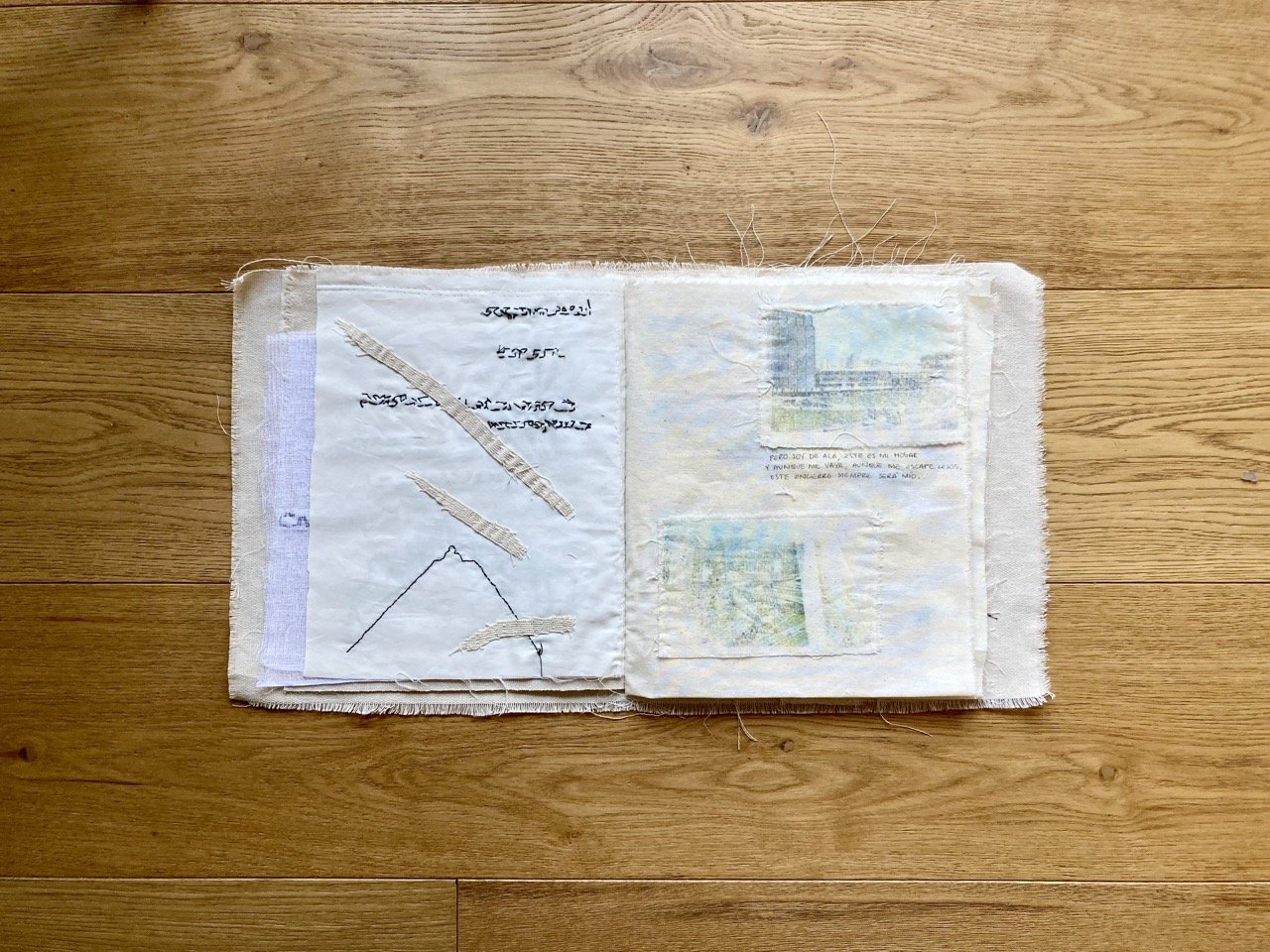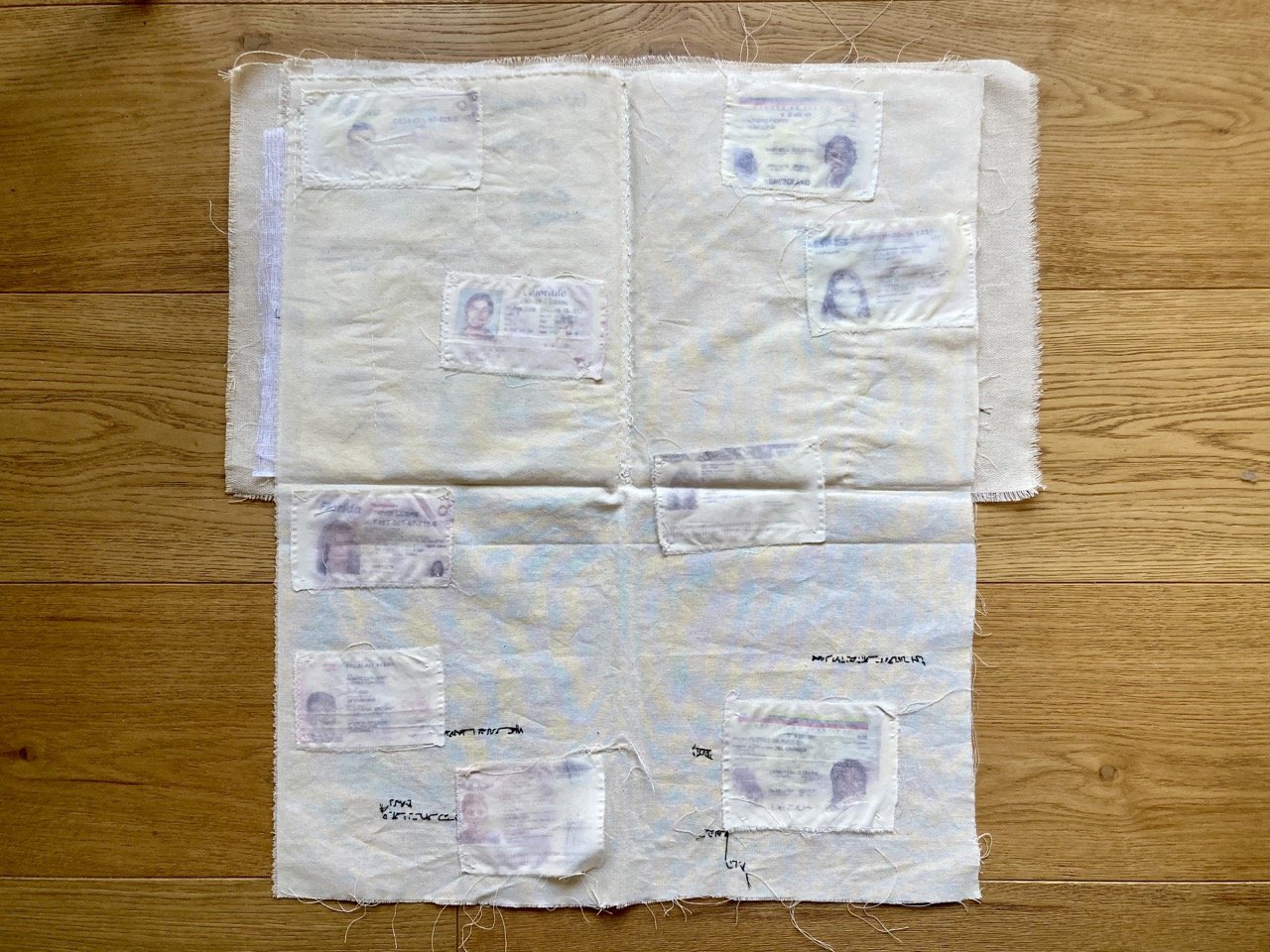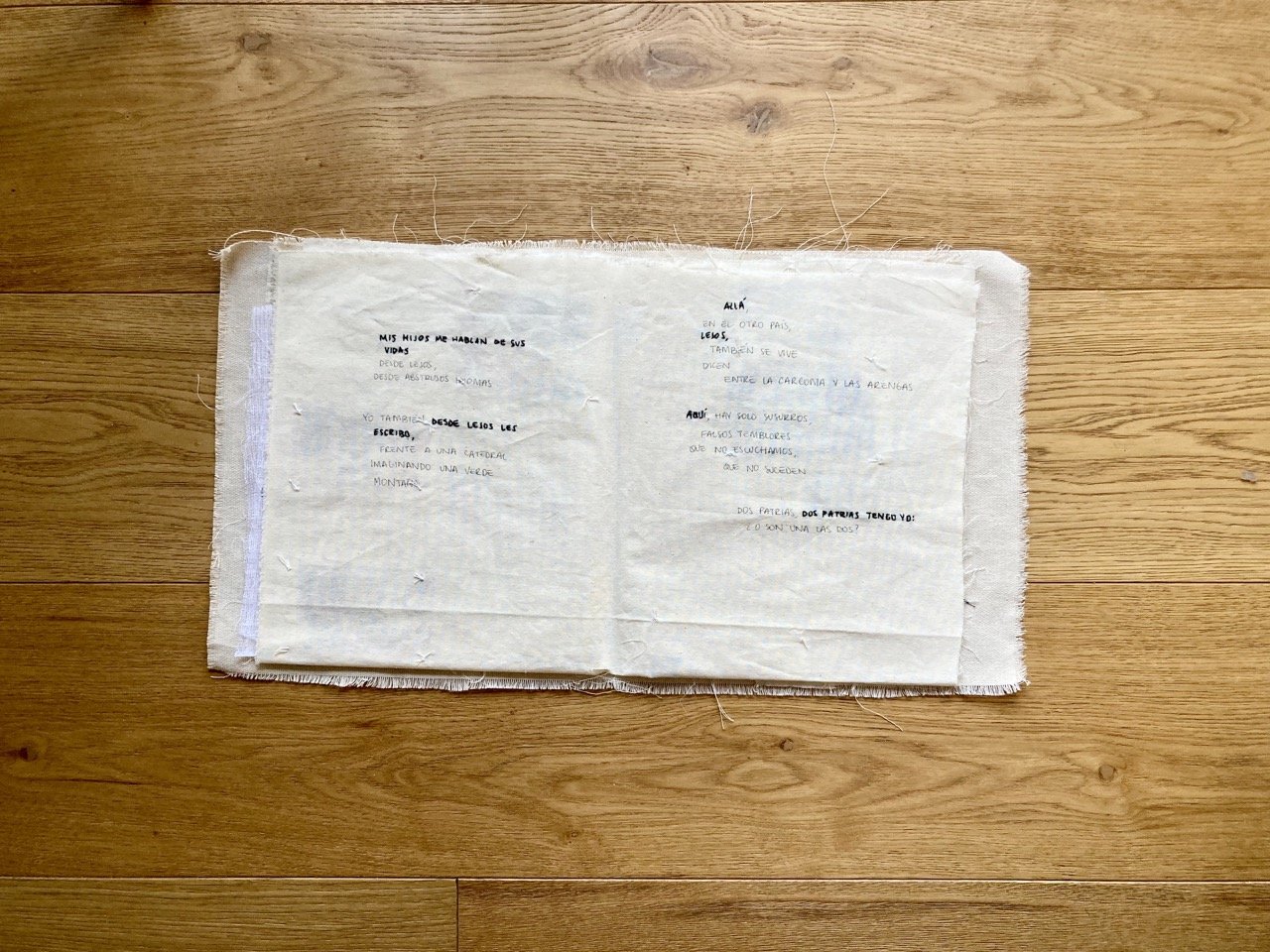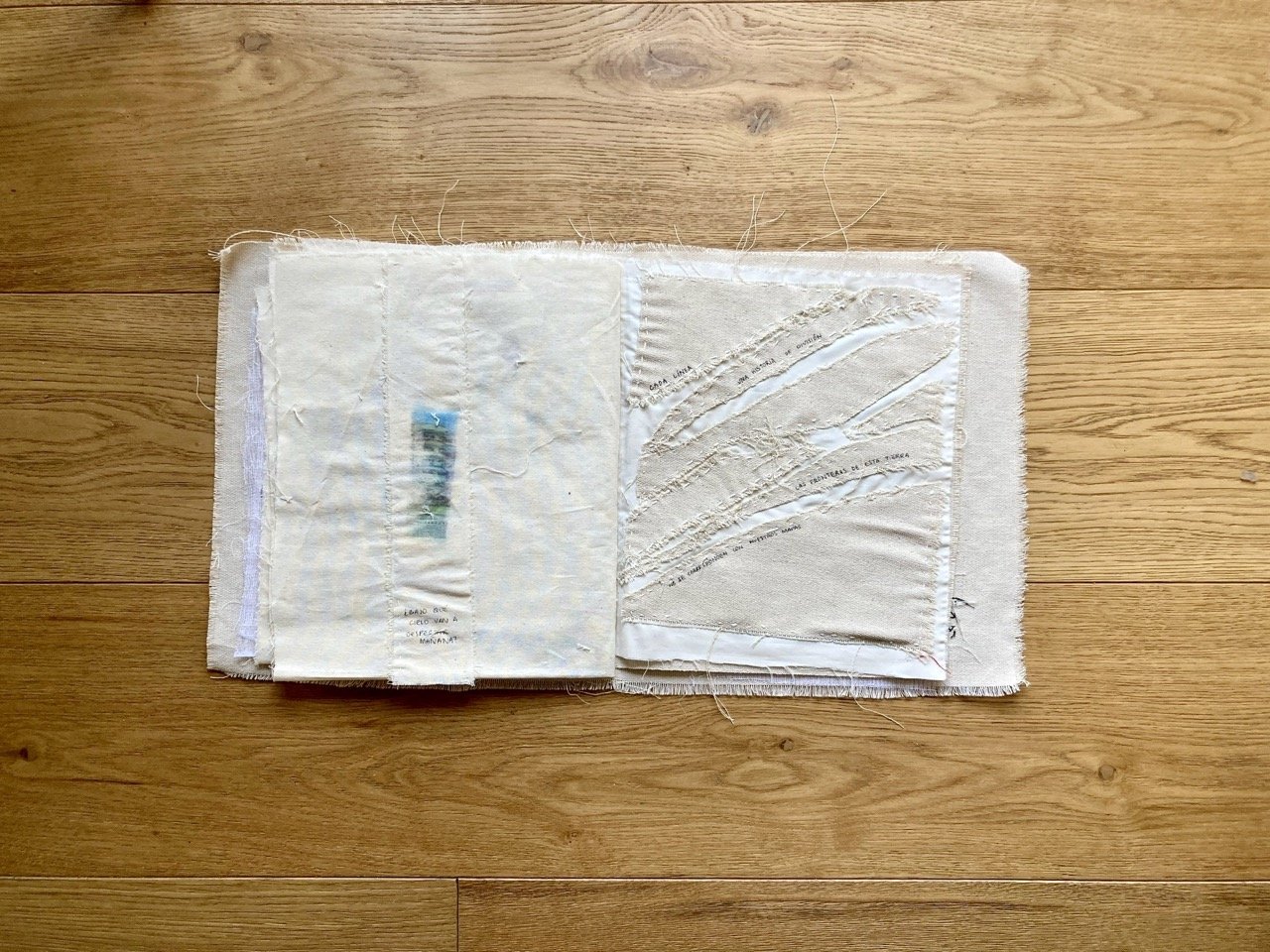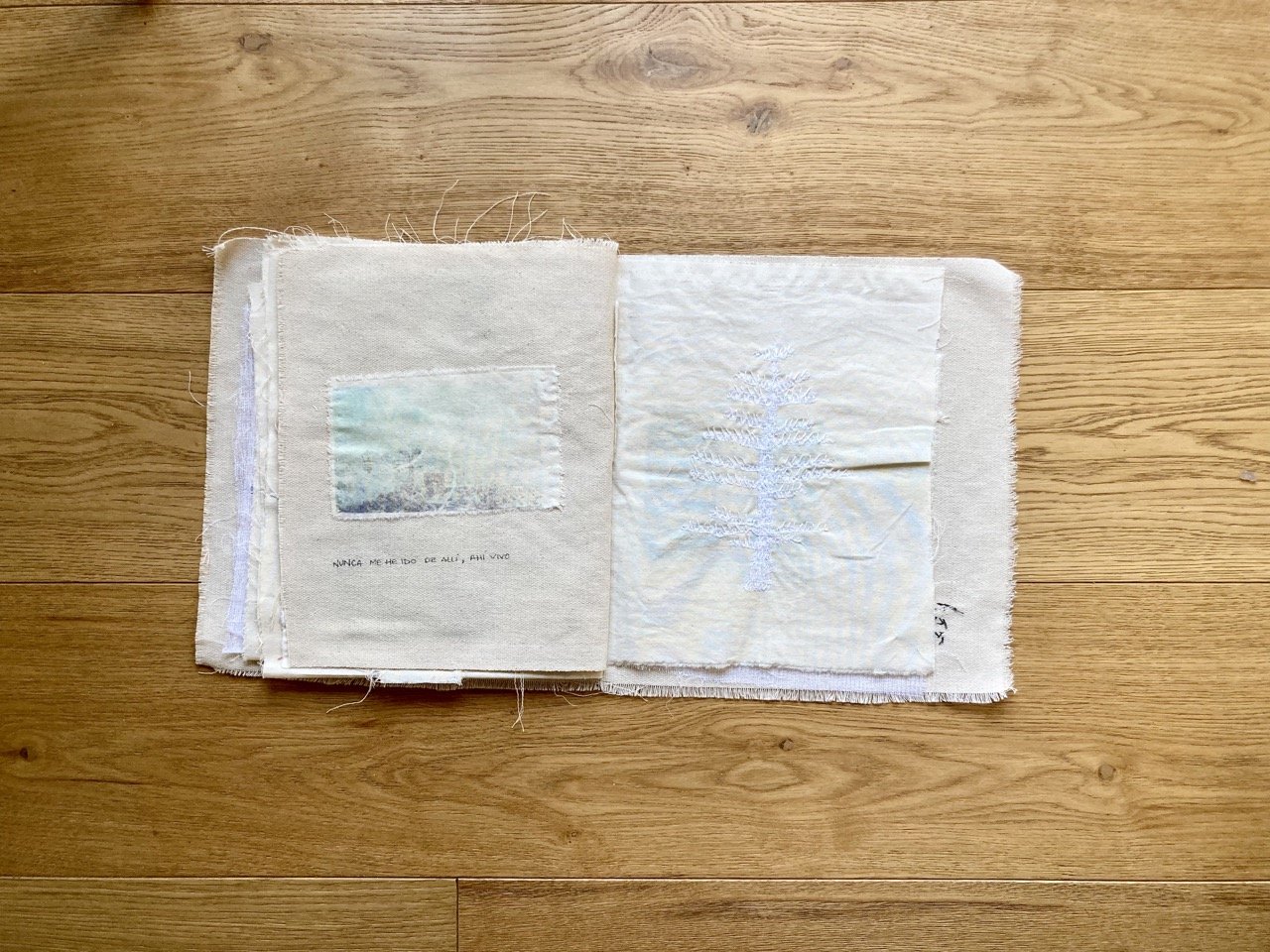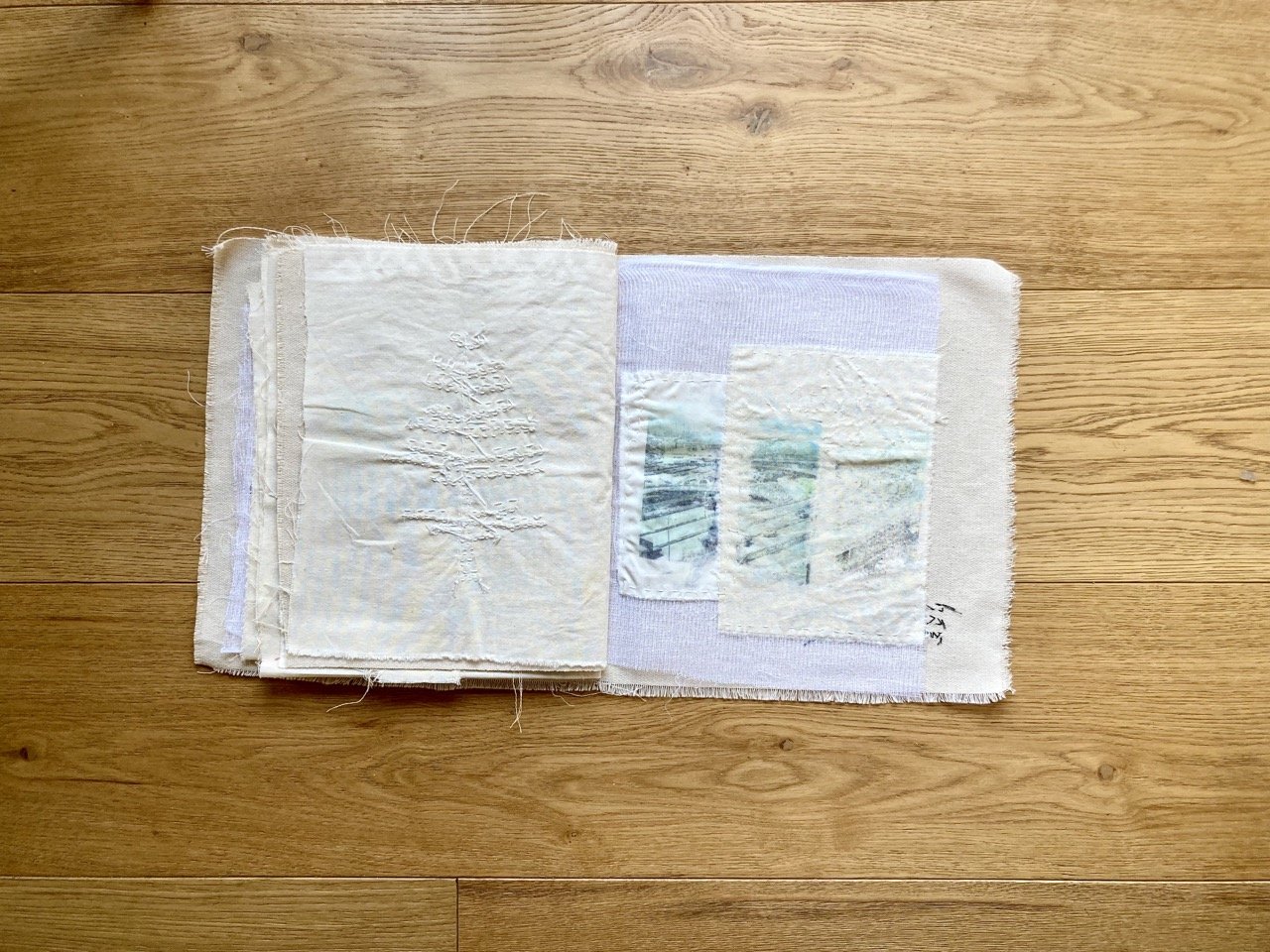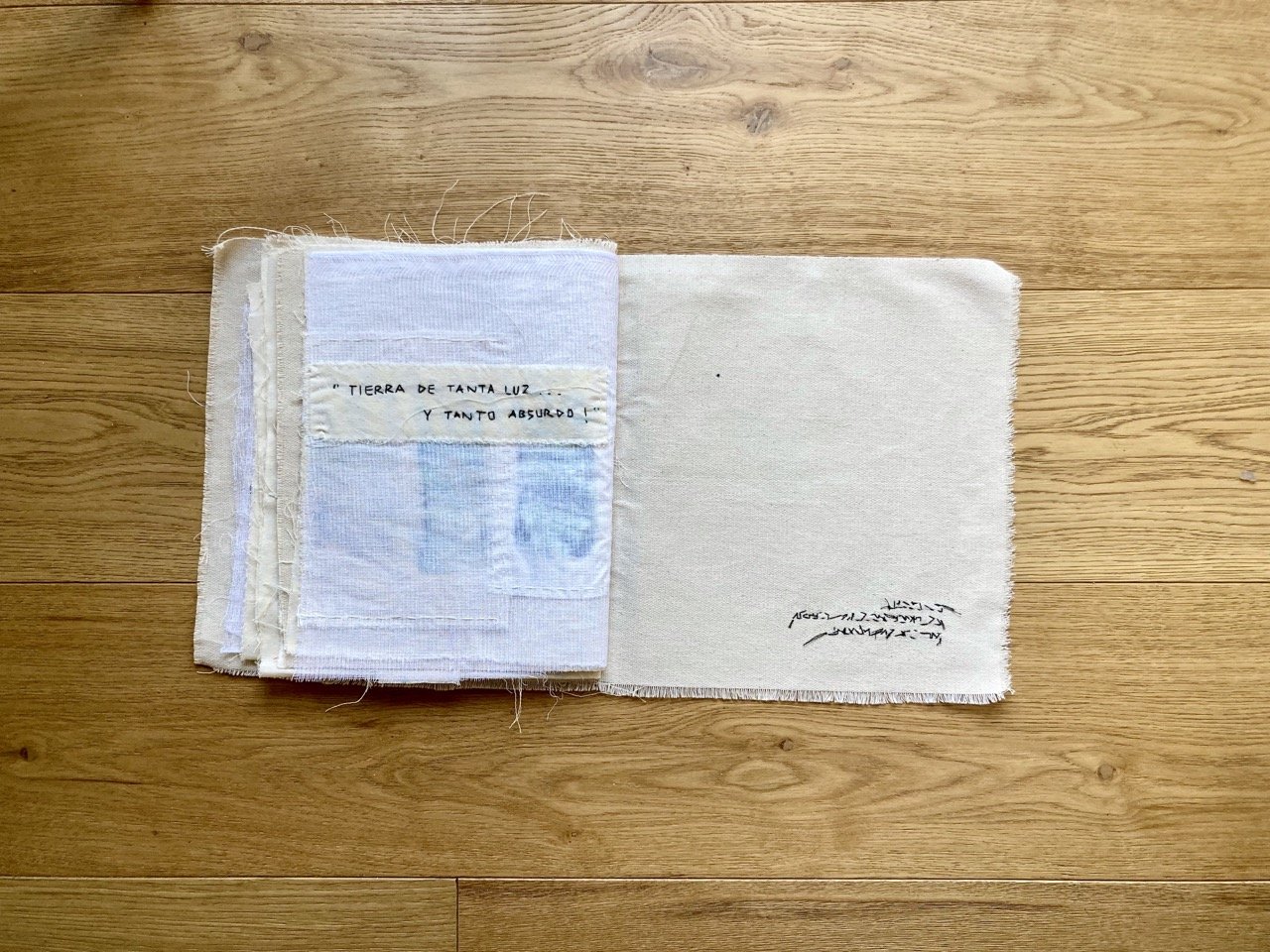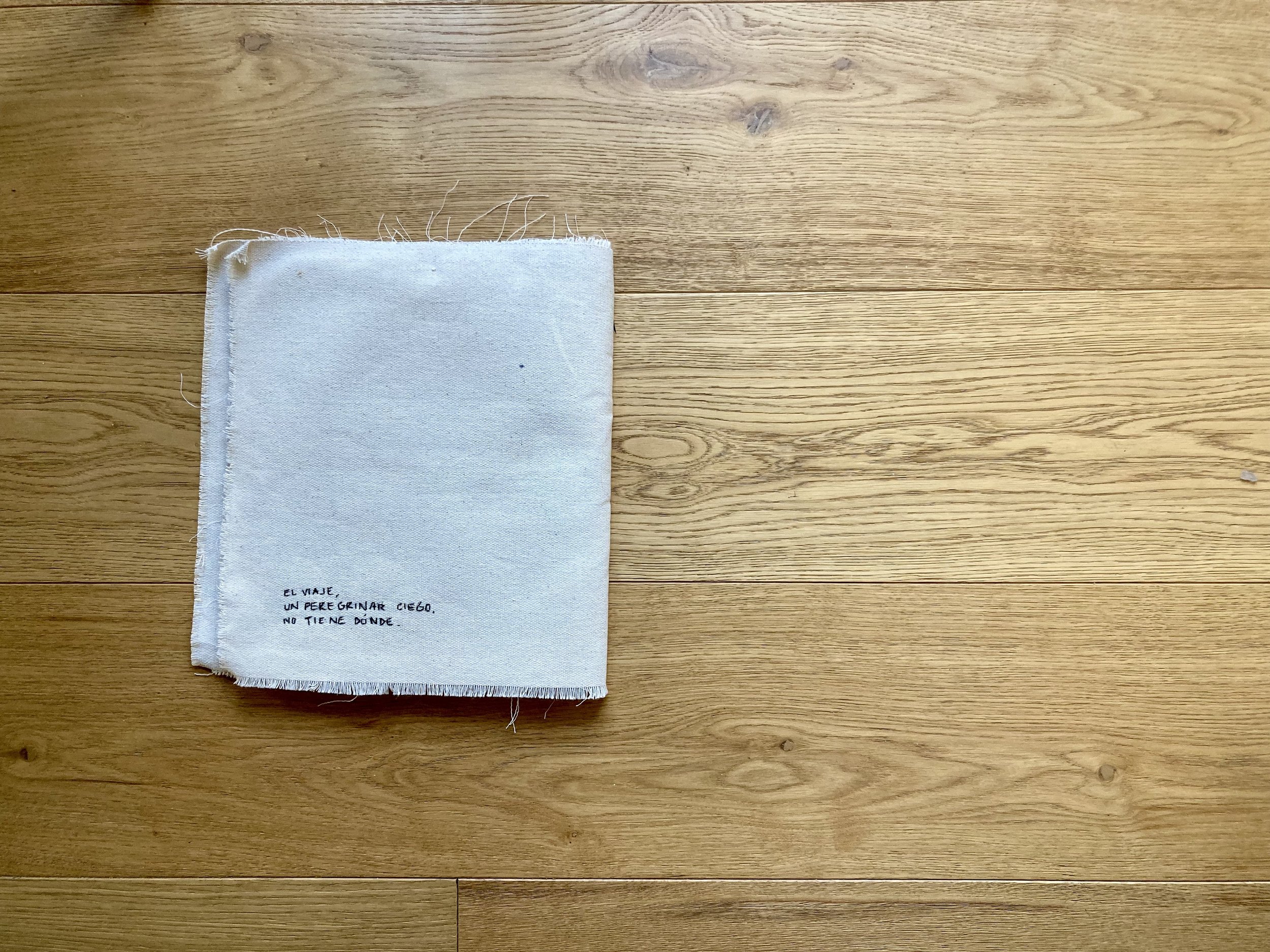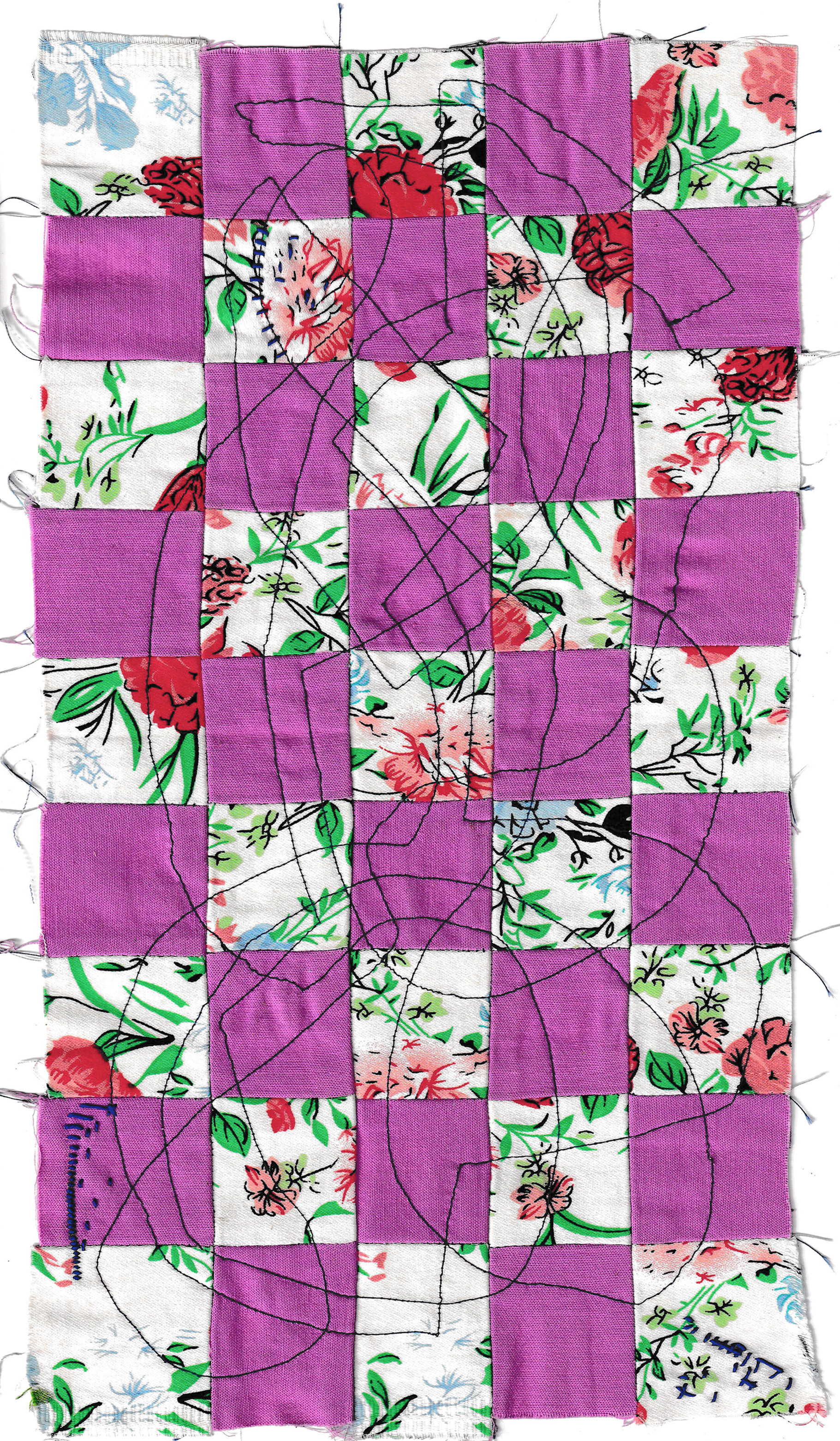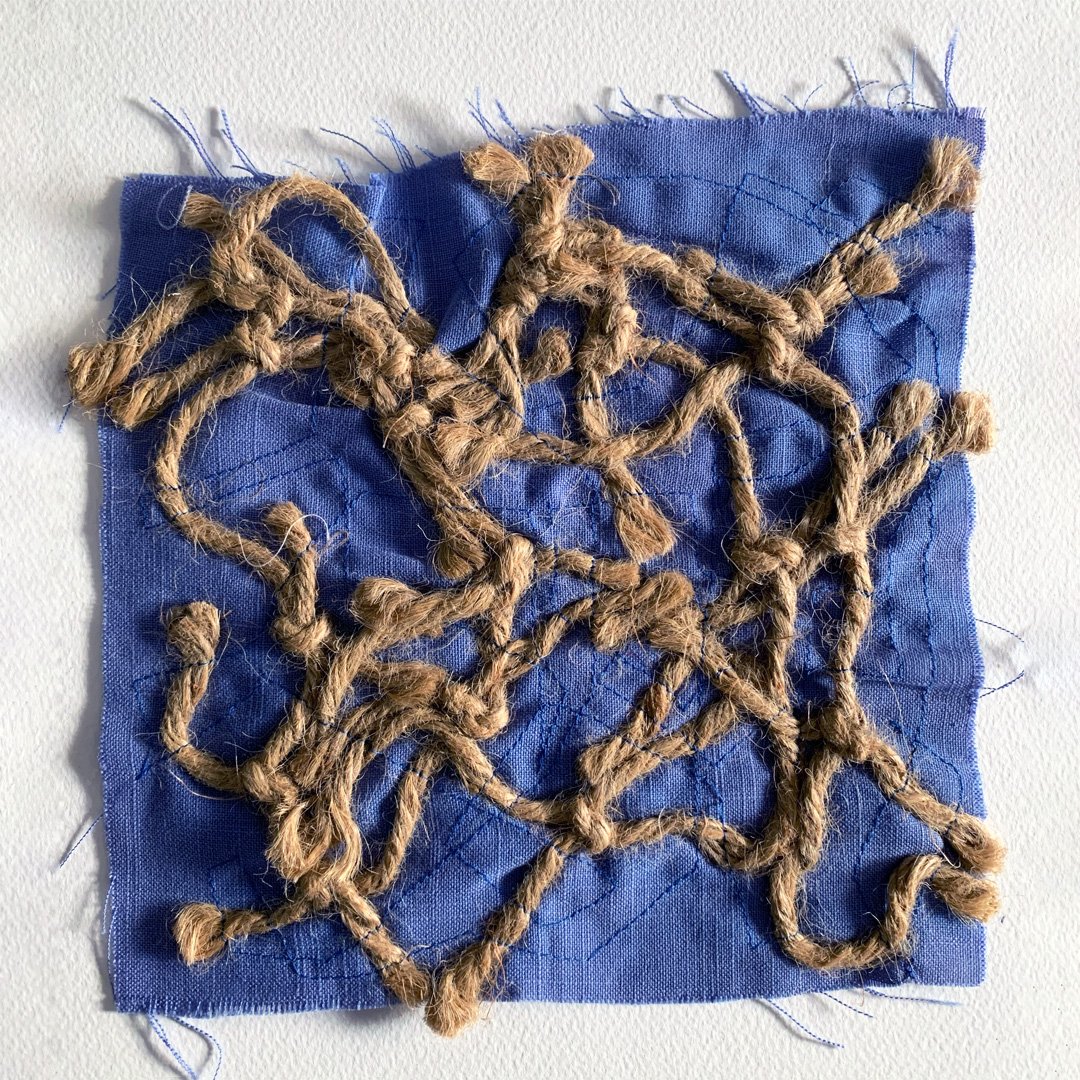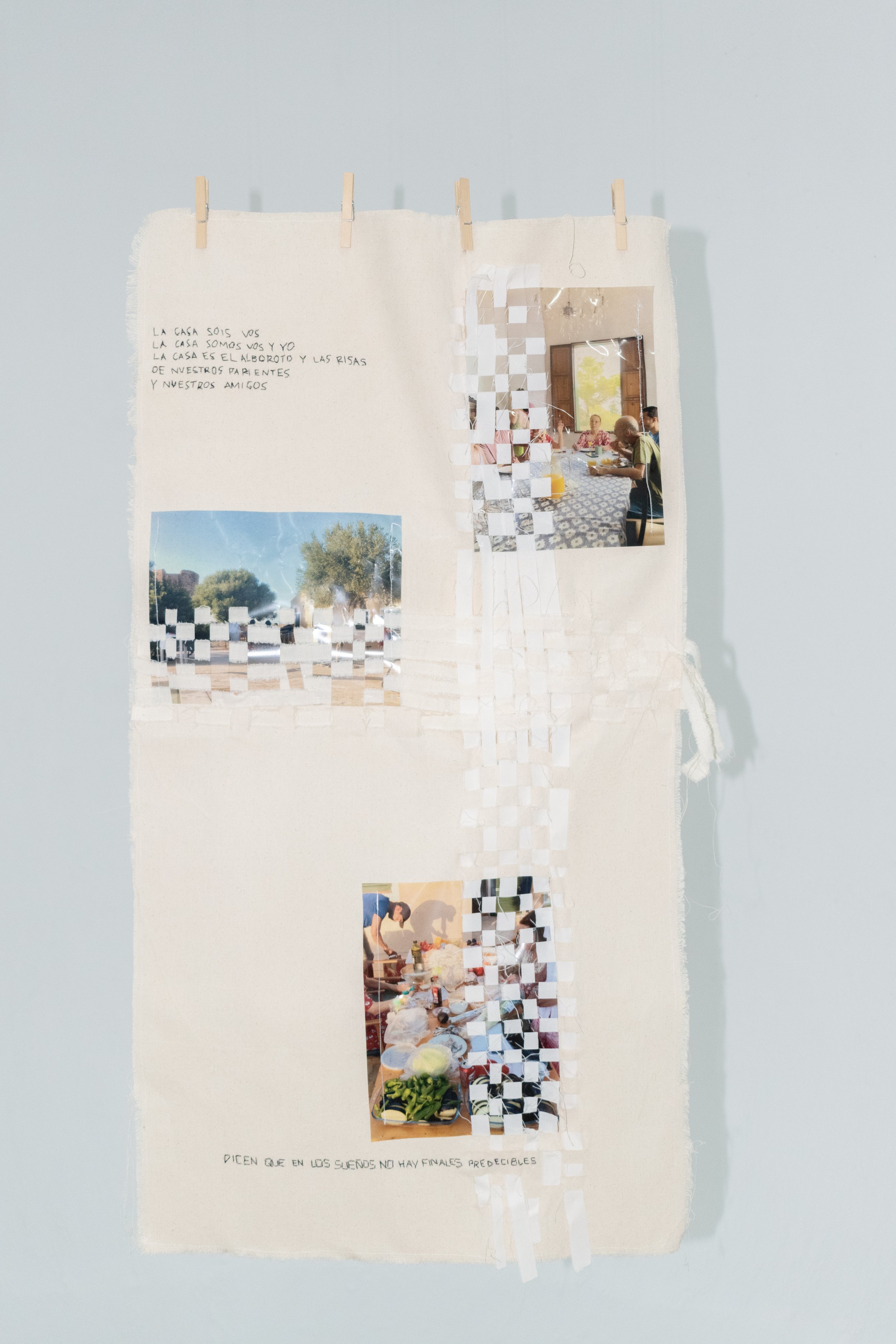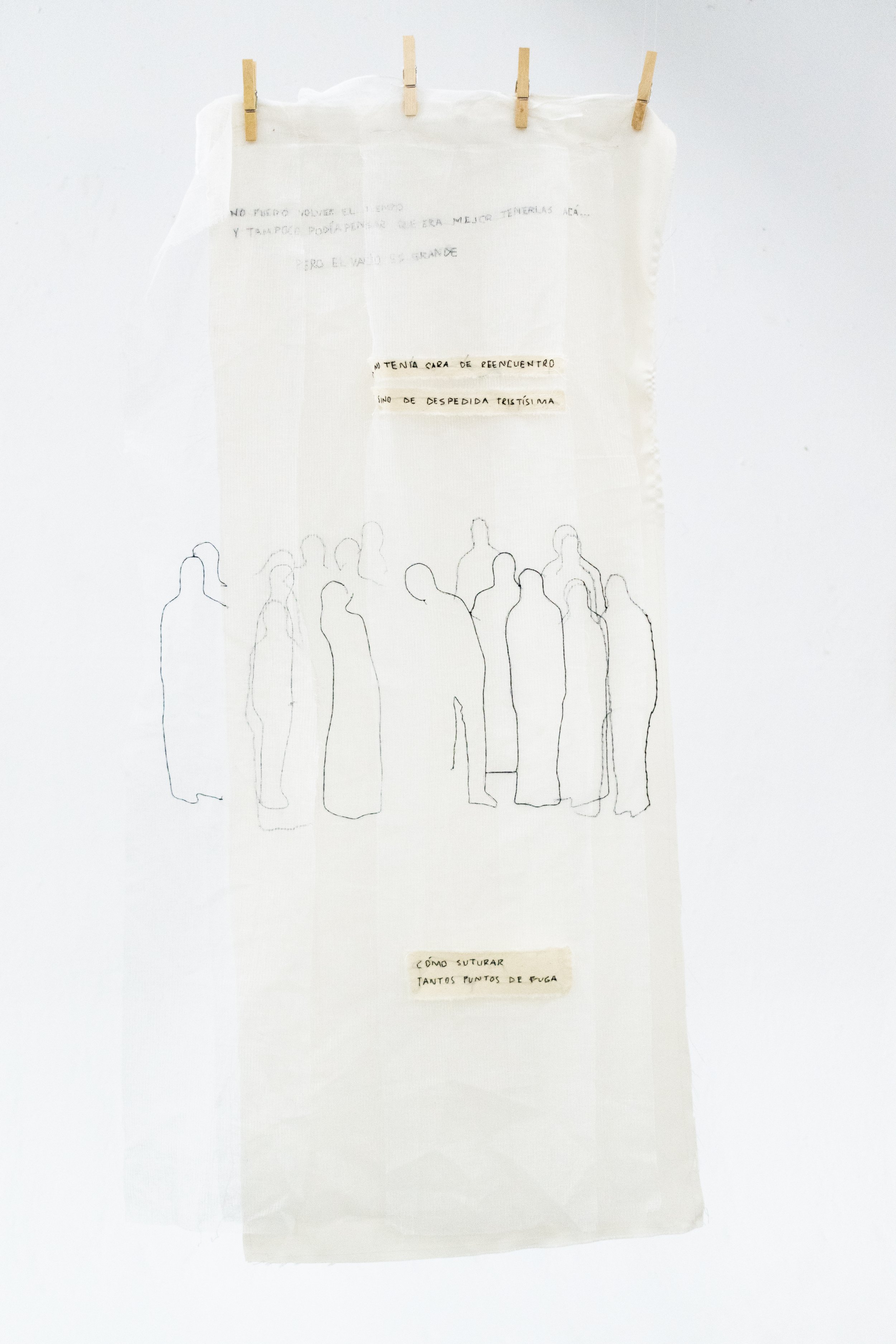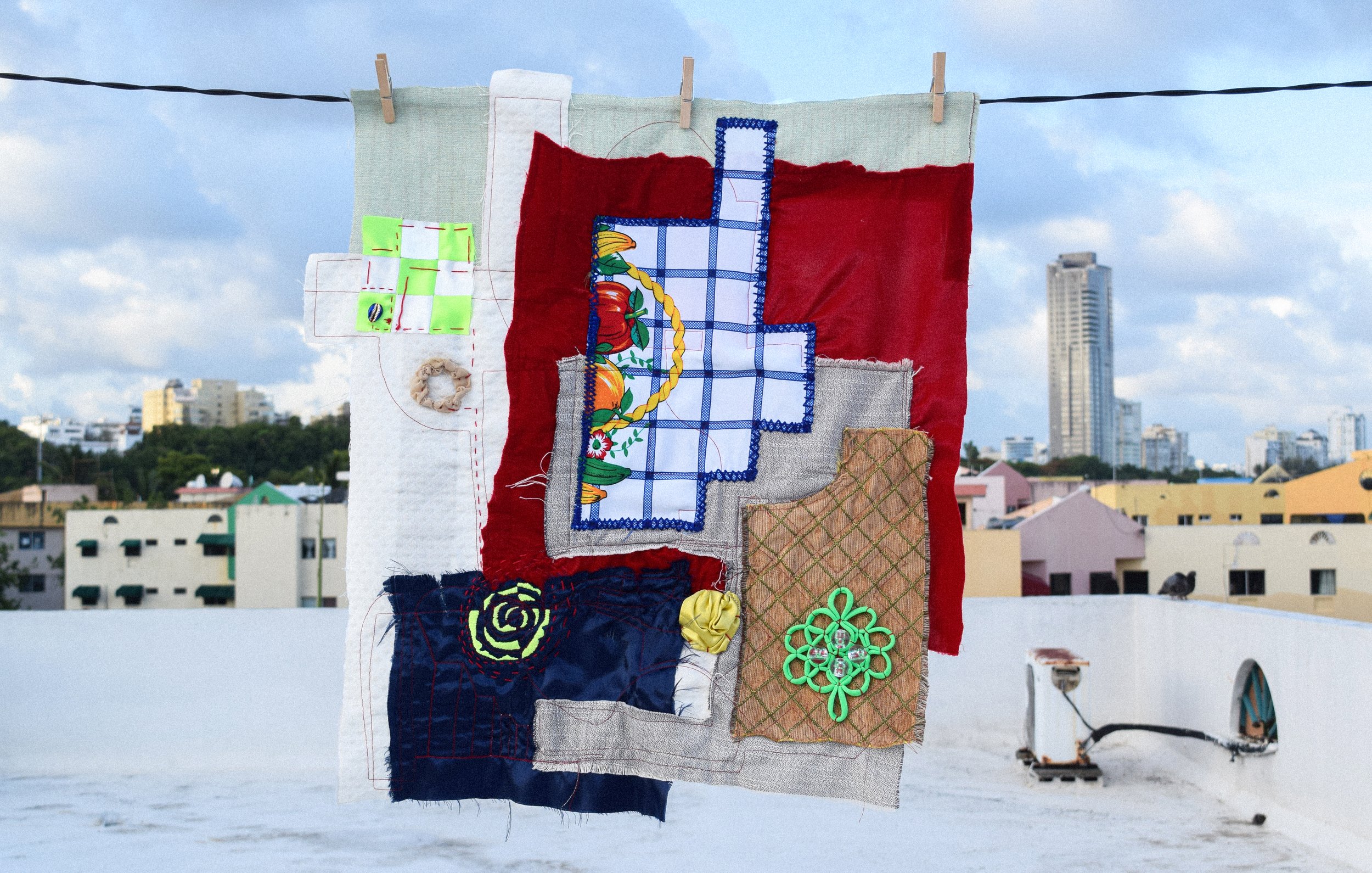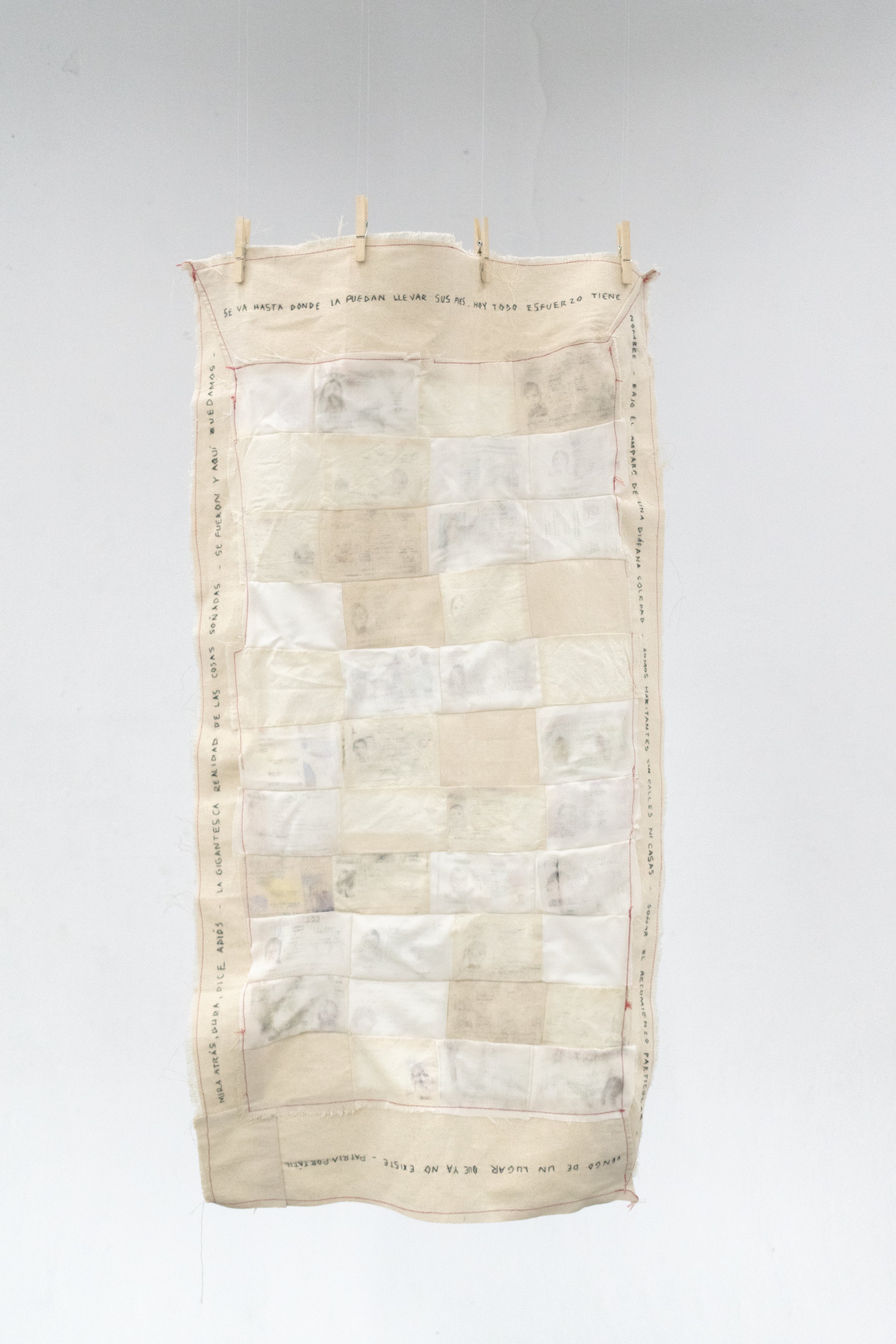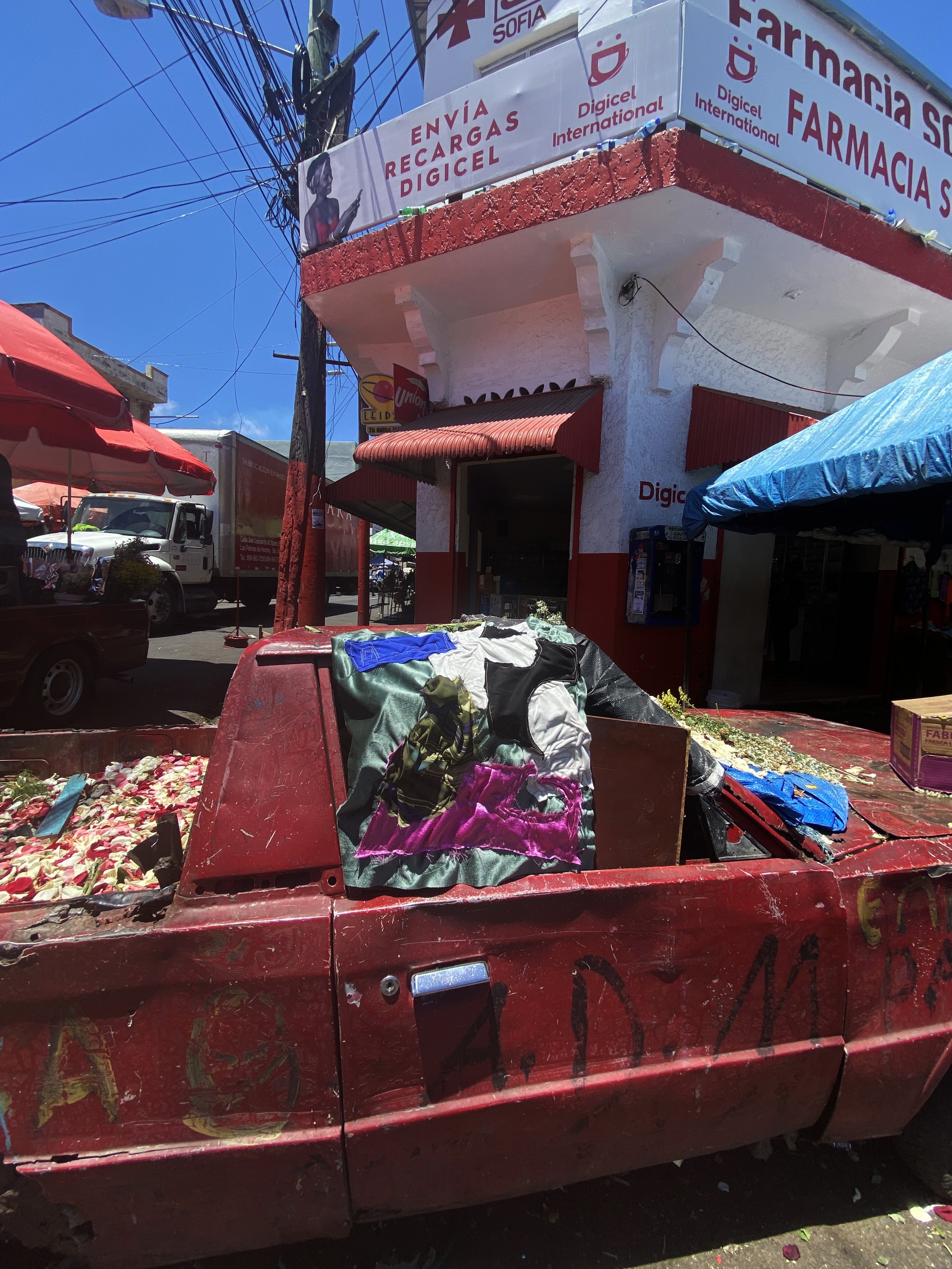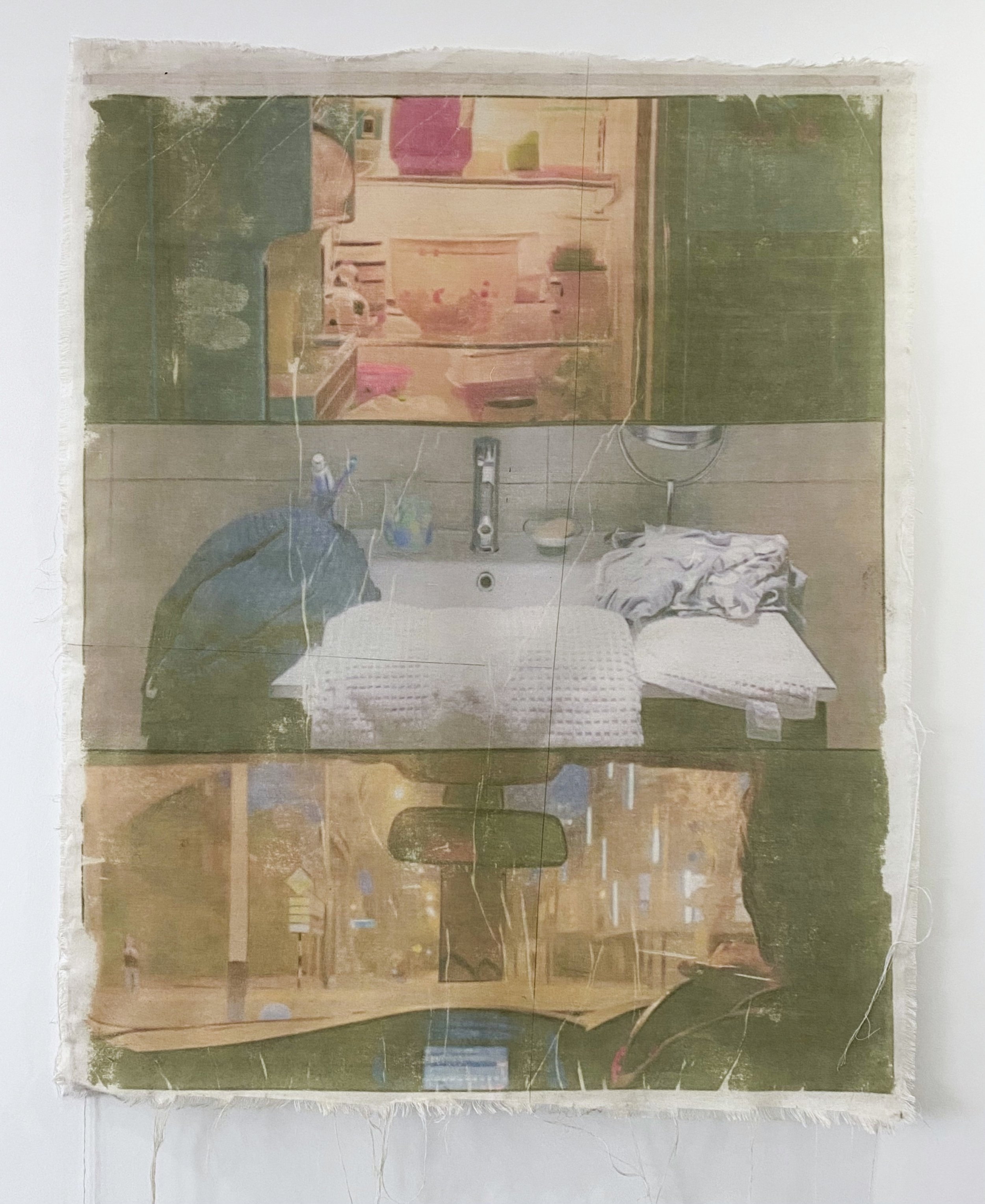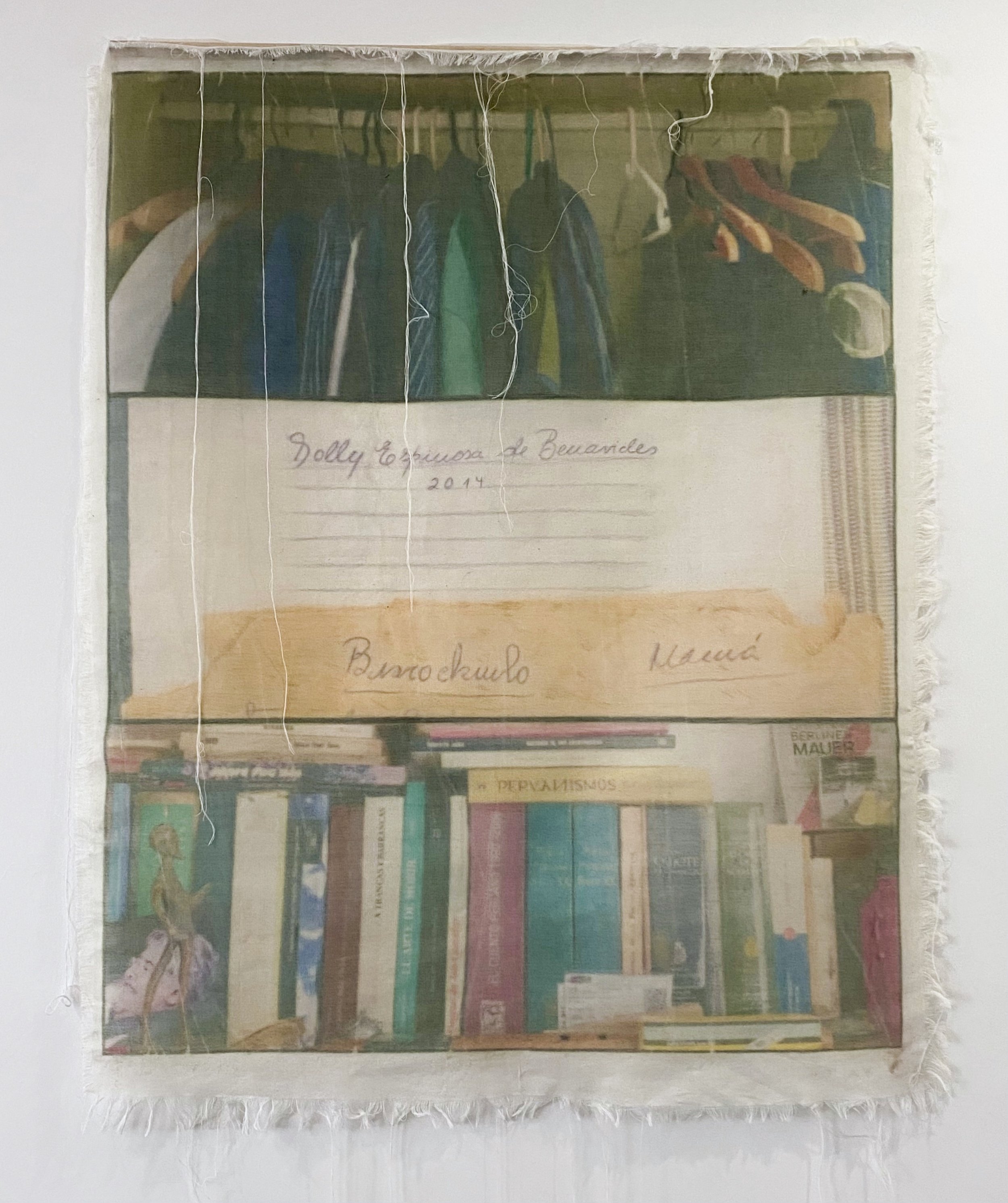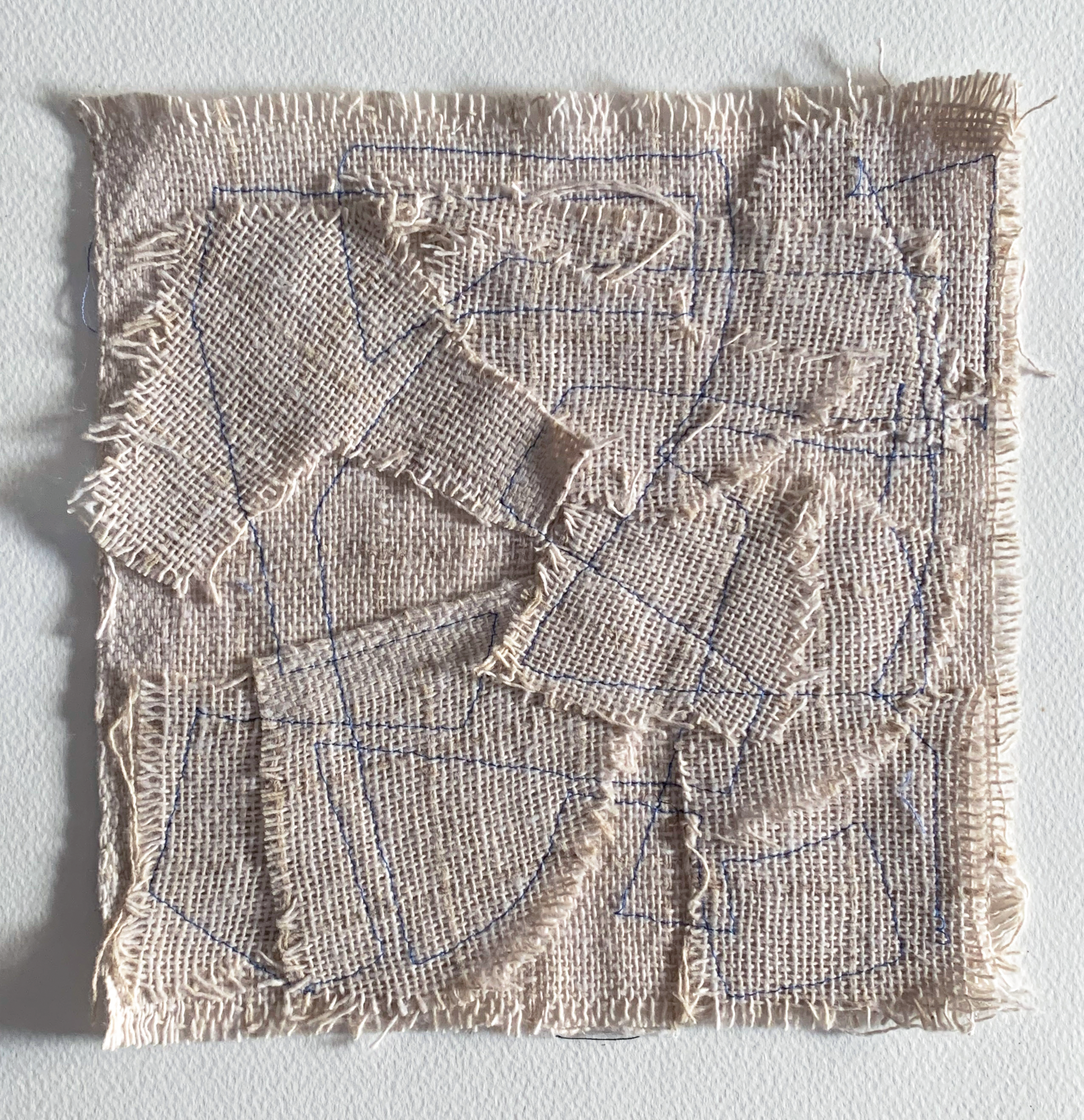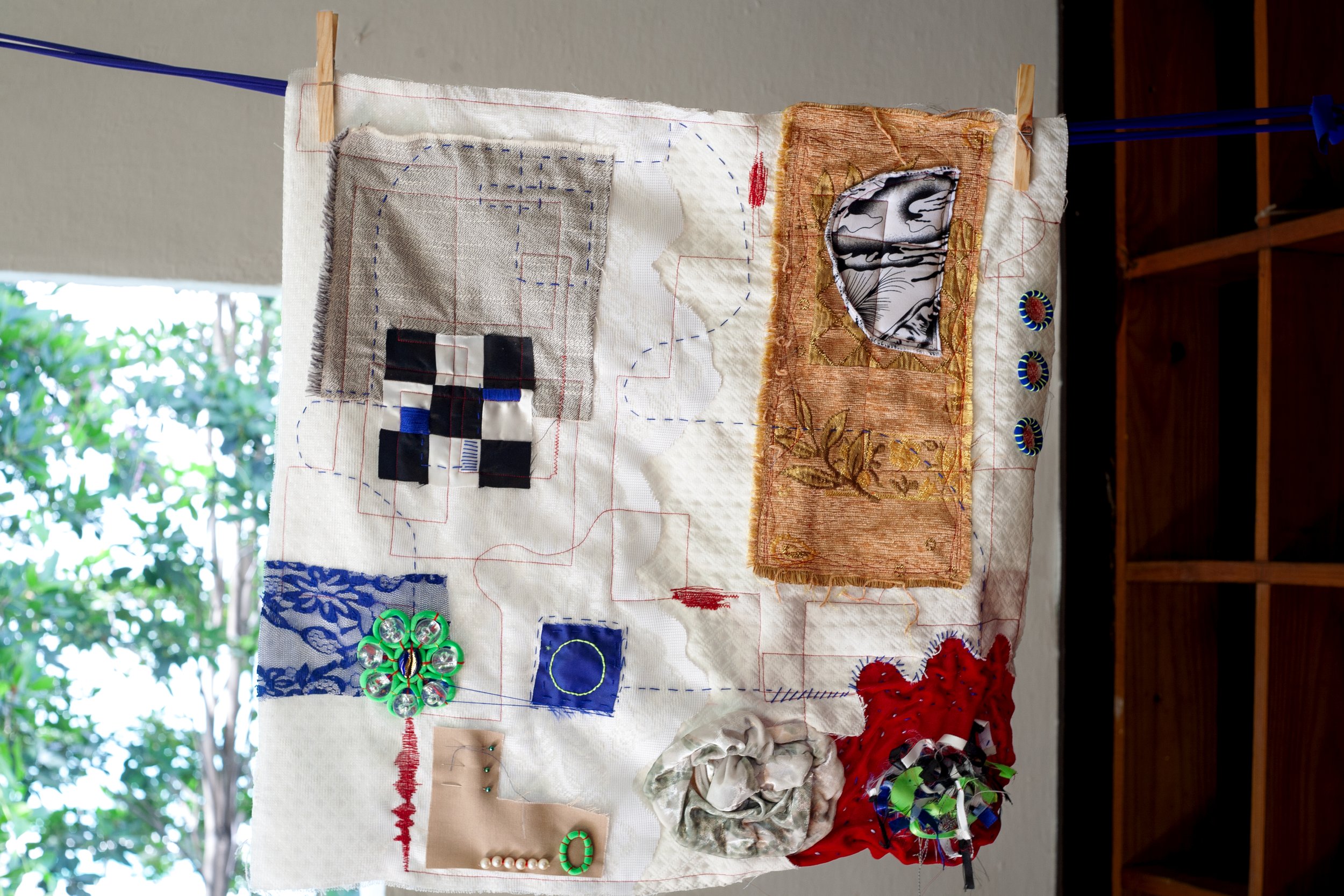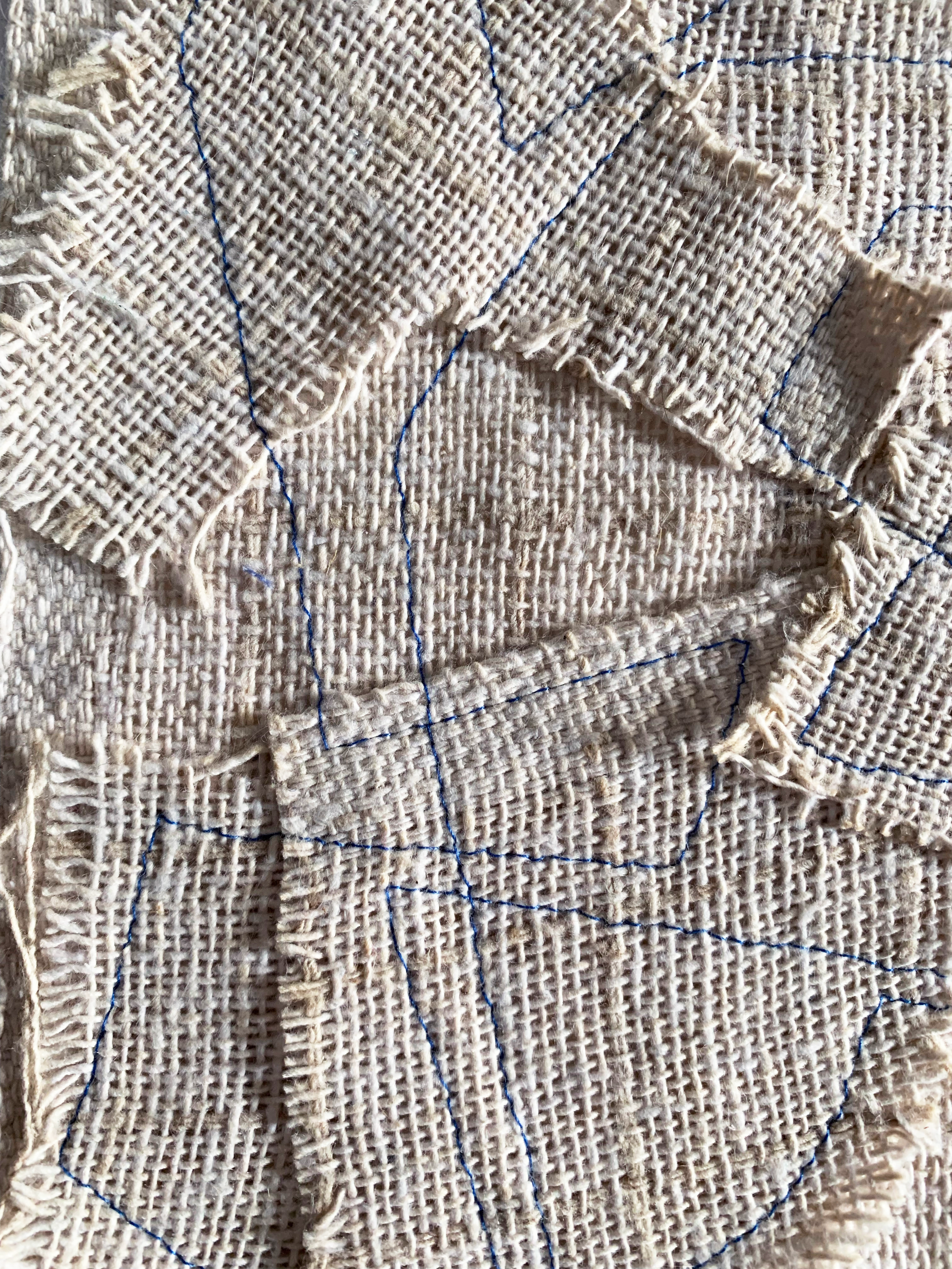
STITCHING WORLDS / TEJIENDO MUNDOS
Artwork by Vera Autiero, Macarena Cárdenas, Johanna Castillo, and Verónica Madrid-Malo
Online exclusive | Opening 07.09.2025
Stitching Worlds brings together four artists whose textile-based practices offer intimate responses to loss, memory, displacement, and cultural transmission. Each artist constructs a language of resistance and repair through thread, fabric, fiber, or repurposed materials. Though their formal approaches differ, they are united by a commitment to slow, intentional processes that prioritize care, tactility, and storytelling.
Vera Autiero, Macarena Cárdenas Benavides, Johanna Castillo, and Verónica Madrid-Malo approach textiles not as a neutral medium but as an extension of lived experience and embodied memory. They work from different geographies and with distinct material languages– thread, fabric, palm leaves, reclaimed garments, image transfers, and found objects– yet they share a sensitive, intuitive, and deeply reflective approach to making. Some embroider, others mend, assemble, collect, or reuse. What binds their work is not a shared aesthetic, but a particular kind of attention: to gesture, to the overlooked, to the fragile and the ephemeral.
Verónica gathers fallen flowers that others might trample, stitching them into visual poems that oscillate between mourning and contemplation. Her work, rooted in drawing and poetry, weaves together natural elements and fragile materials like palm leaves, creating intimate meditations on impermanence and belonging. Vera embroiders emotional cartographies shaped by her migratory experience, layering thread over paper and fabric to stitch together fragments of land, memory, and personal artifacts. Her delicate, labor-intensive works reflect a search for home in the midst of uprooting, connecting private grief to broader histories of displacement.
Johanna reimagines the affective body through transformed garments, weaving questions around care, kinship, and structural violence. Working with reclaimed textiles, knots, and collaborative installations, she draws from Afro-Caribbean thought and environmental concerns to repair what has been broken– whether materially or relationally. Macarena collects discarded objects from daily life and imbues them with renewed presence. Through processes like photographic transfer, embroidery, and textile intervention, she explores the overlooked details of the everyday, questioning how time, fragility, and memory leave their trace on the objects we live with.
In many of these works, thread does not seek to disappear but to show its seams. Mending, fraying, unraveling– actions once associated with domestic maintenance or women’s work– are reimagined here as political, poetic gestures, acts of reclamation. Rather than erase the feminine, these pieces center it. They draw from textile traditions long dismissed by the Western art world, not to simply recover them, but to push them forward: formally, conceptually, and affectively.
While fiber-based practices have, in recent decades, gained renewed recognition within contemporary art; in Latin America, textiles have long been revered as powerful conduits of ancestral knowledge, feminist critique, and collective memory. This exhibition joins in that ongoing celebration. It spotlights four contemporary artists who are expanding the expressive potential of textile work from their own distinct points of departure, contributing to a rich, ever-evolving field.
At a time of mounting environmental collapse, geopolitical violence, and emotional burnout, the cracks in our dominant systems are impossible to ignore. These are the same systems that historically relegated textile practices to the margins of artistic value. But just as the art world has begun to revalue these methods, perhaps it is also time to imagine alternative ways of organizing life: models that prioritize interdependence, receptivity, slowness, and care. Textile practices can offer not only moments of quiet reflection, but blueprints for a different future. Like in speculative fiction– which imagines new social realities beyond the constraints of the present– they are nonlinear, generative, and steeped in alternate timelines. Through soft materials and rigorous processes, these works invite us to listen differently– to imagine and begin to weave new ways of being.
